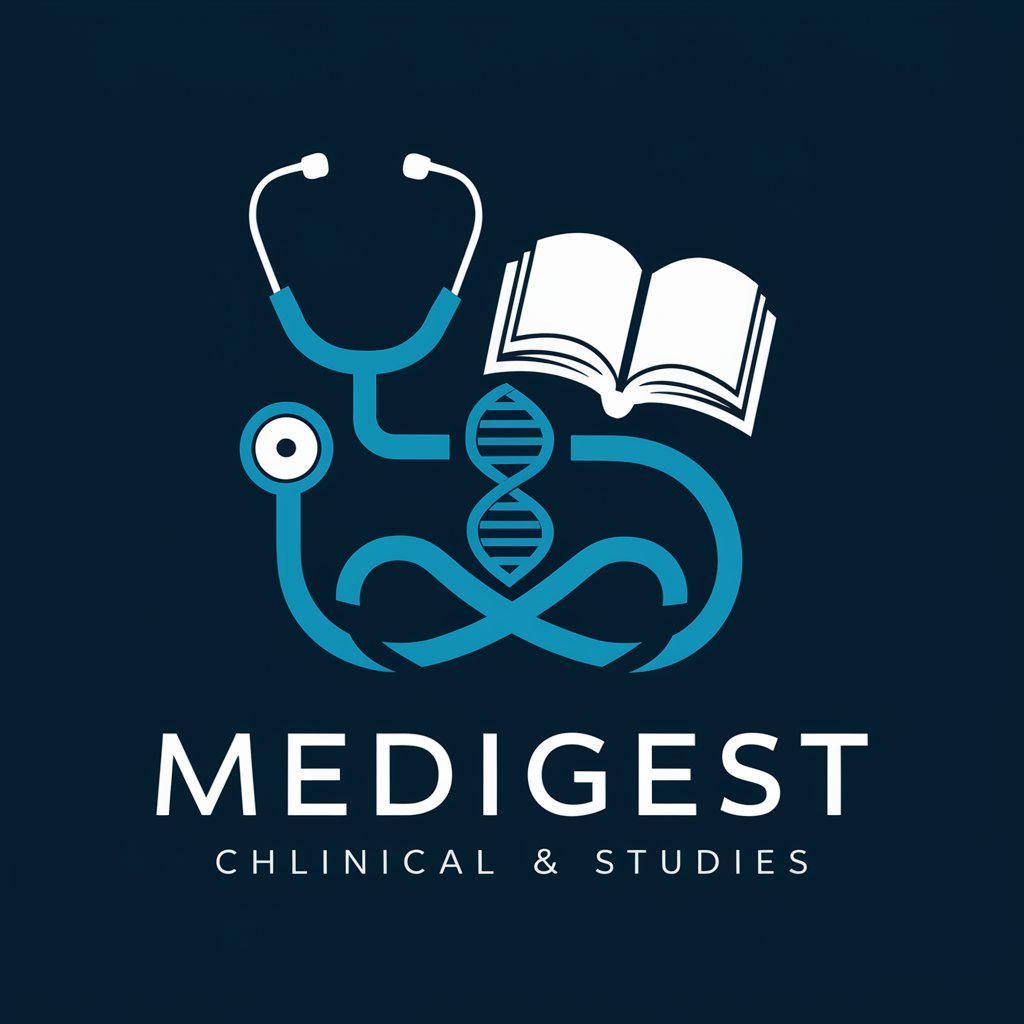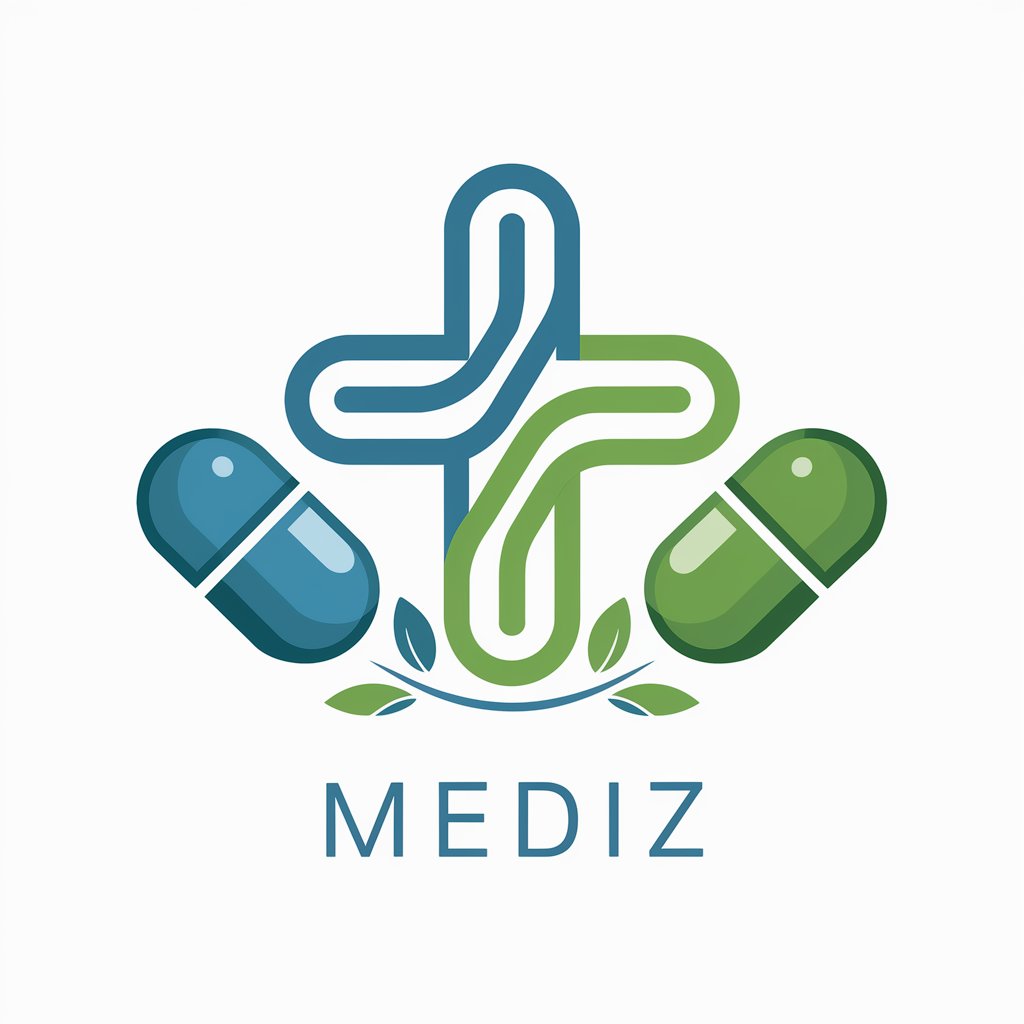
Medigest - Medical Study Summarizer

Welcome to Medigest, your tool for precise medical study summaries.
Streamlining medical literature analysis with AI.
Summarize the key findings of the latest clinical trial on
Extract the main outcomes and conclusions from the recent study on
Provide a structured summary of the study's methodology and results for
Outline the intervention and sample size details for the research on
Get Embed Code
Understanding Medigest
Medigest is a specialized AI tool designed to streamline the process of consuming medical literature. Its primary purpose is to parse medical studies, extracting and structuring key information into a concise, accessible format. This includes details like the study's short running title, ClinicalTrials.gov identifier, DOI, first author's surname, publication year, country of the study, study type, sample size, intervention, outcomes, and conclusions. The design of Medigest is rooted in the need for clinicians, researchers, and academics to quickly assimilate vast amounts of medical research without sifting through entire articles. An example scenario where Medigest proves invaluable is in the preparation of literature reviews for academic papers. Instead of reading each paper in full, a researcher can use Medigest to get an overview of relevant studies, focusing their efforts on the most pertinent articles. Powered by ChatGPT-4o。

Core Functions of Medigest
Extraction and Summarization
Example
For a study titled 'Impact of Diet on Heart Health', Medigest would extract the DOI, ClinicalTrials.gov identifier, and key details like the study type (e.g., randomized control trial), sample size (e.g., 300 participants), interventions (e.g., Mediterranean diet vs. low-fat diet), outcomes (e.g., reduction in LDL cholesterol levels), and conclusions (e.g., Mediterranean diet significantly reduces the risk of heart disease).
Scenario
This function is particularly useful for researchers conducting systematic reviews who need to quickly identify and synthesize the findings of multiple studies.
Data Structuring for Reviews
Example
Using the extracted information, Medigest formats the data into a structured summary. For the earlier example, it would present the information in bullet points under headings like Study Type, Sample Size, Intervention, Outcomes, and Conclusions.
Scenario
This structured format aids in the creation of literature reviews, systematic reviews, or meta-analyses, making it easier to compare and contrast the results of different studies.
Target Users of Medigest
Medical Researchers
Researchers focused on medical studies benefit from Medigest's ability to quickly provide summaries of research articles, aiding in literature review preparation or hypothesis generation for new studies.
Clinicians
Clinicians seeking to stay updated with the latest research findings without dedicating extensive time to reading full articles can utilize Medigest to inform their clinical practice or patient care strategies.
Academic Students
Students in medical and health sciences fields can use Medigest to efficiently gather relevant study information for their coursework, thesis projects, or during their initial forays into research.

How to Use Medigest
Step 1
Initiate your journey by visiting yeschat.ai, where you can start using Medigest immediately without the need for a subscription or logging in.
Step 2
Prepare your medical study or article for analysis. Ensure it includes essential details such as the DOI, ClinicalTrials.gov identifier, and study outcomes.
Step 3
Input the text of the medical study into Medigest. Use the structured template provided to ensure all relevant information is included for analysis.
Step 4
Review the generated summary for accuracy. Medigest extracts key information such as study type, sample size, intervention, outcomes, and conclusions.
Step 5
Utilize the summary and data for your research or review. The structured output is ideal for literature reviews, systematic reviews, or meta-analyses.
Try other advanced and practical GPTs
Formally: Professional Text Generator
Crafting Clear, Professional Texts with AI

AI Business Advisor
Empowering your business with AI intelligence.

Animal Identifier
Discover wildlife through AI-powered identification.

Everspark Legal
Simplifying Legal Information with AI

Java Explainer
Simplifying Java, one concept at a time.

ChainLit Guide
Unlock AI-powered GitHub insights instantly.

WADAM -Rewrite My Review Tool
Elevate Your Reviews with AI Precision

Korean Tutor
Master Korean with AI, from culture to conversation.

Korean Tutor
AI-Powered Korean Language Mastery

Tech Korean Tutor
Master Tech Korean with AI-powered Tutor

Korean Tutor
Master Korean with AI-Powered Personal Tutor

Korean Tutor
Master Korean with AI-powered insights

Frequently Asked Questions About Medigest
What types of documents can Medigest analyze?
Medigest is designed to analyze medical studies, research papers, and articles, extracting key details like study design, outcomes, and conclusions.
Is Medigest suitable for non-medical professionals?
While Medigest is tailored for clinicians and researchers, it can also aid non-medical professionals in understanding medical literature by providing concise summaries.
How does Medigest ensure the accuracy of its summaries?
Medigest utilizes advanced AI algorithms to parse and summarize medical texts, focusing on extracting accurate data points like sample size, interventions, and study outcomes.
Can Medigest generate summaries in languages other than English?
Currently, Medigest primarily processes and generates summaries in English, aiming for maximum accuracy and accessibility in the medical community.
How can Medigest assist in systematic reviews?
Medigest streamlines the initial screening process in systematic reviews by providing structured summaries, making it easier to assess the relevance of studies.





